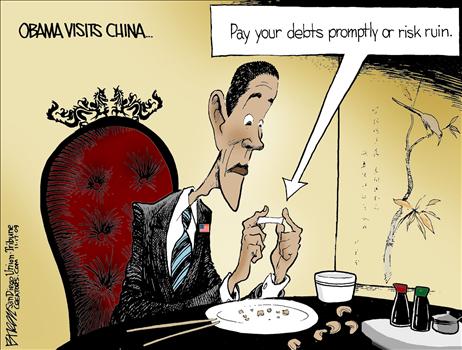 During the “off season” after NFL Nationals, the issue of the budget deficit has come to be a major one in American politics. It has the potential to shape the outcome of the midterm elections in 2010 and is playing a role in President Barack Obama’s declining popularity ratings. As extempers get ready for the 2009-2010 season, which starts in less than six weeks with the Wake Forest National Early Bird, they will face questions about an array of economic issues such as unemployment, the effectiveness of the stimulus package, and the level of international trade as well as the controversial issue of healthcare reform. All of these issues have something to do with the budget of the United States government and by proxy the deficit the U.S. government currently finds itself facing.
During the “off season” after NFL Nationals, the issue of the budget deficit has come to be a major one in American politics. It has the potential to shape the outcome of the midterm elections in 2010 and is playing a role in President Barack Obama’s declining popularity ratings. As extempers get ready for the 2009-2010 season, which starts in less than six weeks with the Wake Forest National Early Bird, they will face questions about an array of economic issues such as unemployment, the effectiveness of the stimulus package, and the level of international trade as well as the controversial issue of healthcare reform. All of these issues have something to do with the budget of the United States government and by proxy the deficit the U.S. government currently finds itself facing.
Americans in the late 1990s got used to seeing fiscal discipline on Capitol Hill between the executive and legislative branches. President Bill Clinton worked with Republican leaders on Capitol Hill, a relationship that was often tense through impeachment proceedings and a government shutdown, to craft a budget that was balanced and that ran a surplus totaling $128 billion. In fact, the major issue of the 2000 election between Vice-President Al Gore and then-Texas Governor George W. Bush was over what to do with this budget surplus, with Gore arguing that it needed to be used to shore up entitlement programs such as Social Security in a “lockbox” and Bush arguing that it needed to be given back to the American people in the form of a tax cut. After the first presidential debate between the two men in the fall of 2000, Saturday Night Live had a hilarious mock debate over this issue.


 Shortly after getting Congress to pass his economic stimulus bill, worth $787 billion, Barack Obama has again presented Congress with his plan for the federal budget for next year. Under our constitutional system, the President has the responsibility to make the budget, but Congress must debate its proposals, amend it if they choose, and then vote on the final package. While the current version of Obama’s 2010 budget, worth $3.6 trillion, $1.2 trillion being borrowed, is not likely to stay in its current form, it nevertheless gives us insight into his presidential priorities and where he would like to take the country.
Shortly after getting Congress to pass his economic stimulus bill, worth $787 billion, Barack Obama has again presented Congress with his plan for the federal budget for next year. Under our constitutional system, the President has the responsibility to make the budget, but Congress must debate its proposals, amend it if they choose, and then vote on the final package. While the current version of Obama’s 2010 budget, worth $3.6 trillion, $1.2 trillion being borrowed, is not likely to stay in its current form, it nevertheless gives us insight into his presidential priorities and where he would like to take the country.